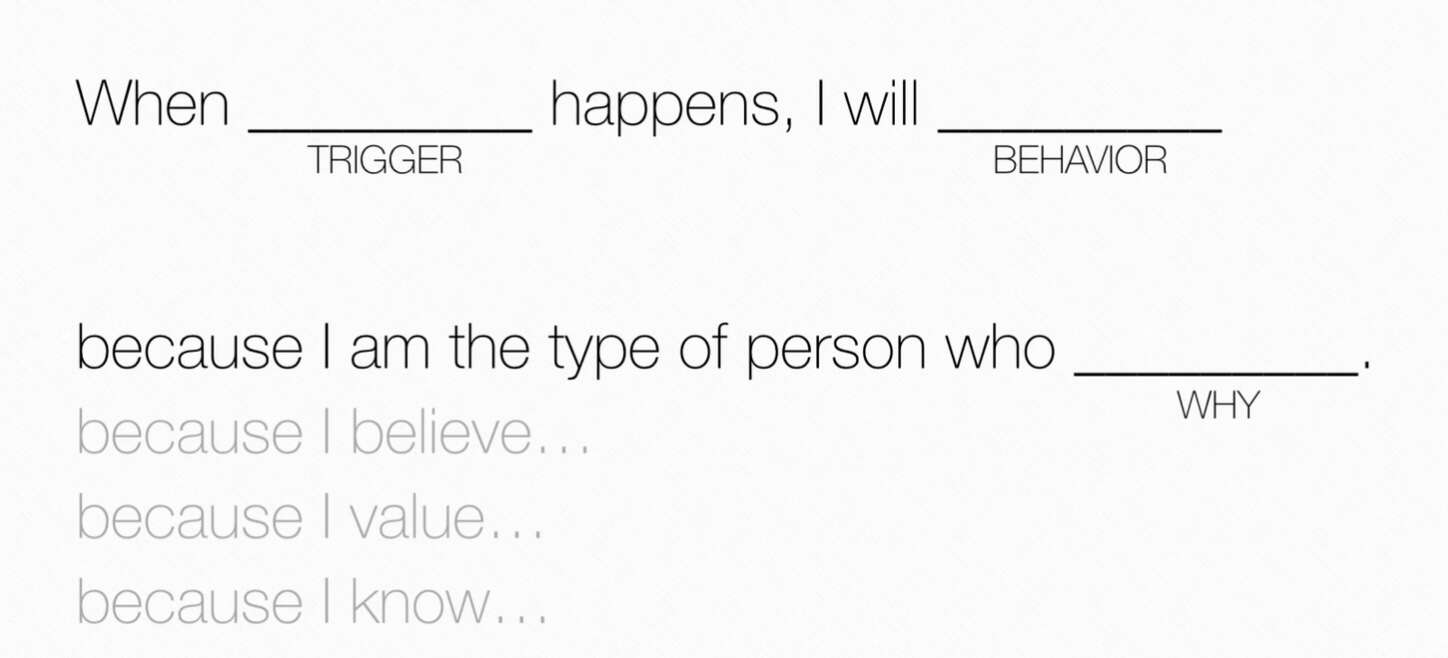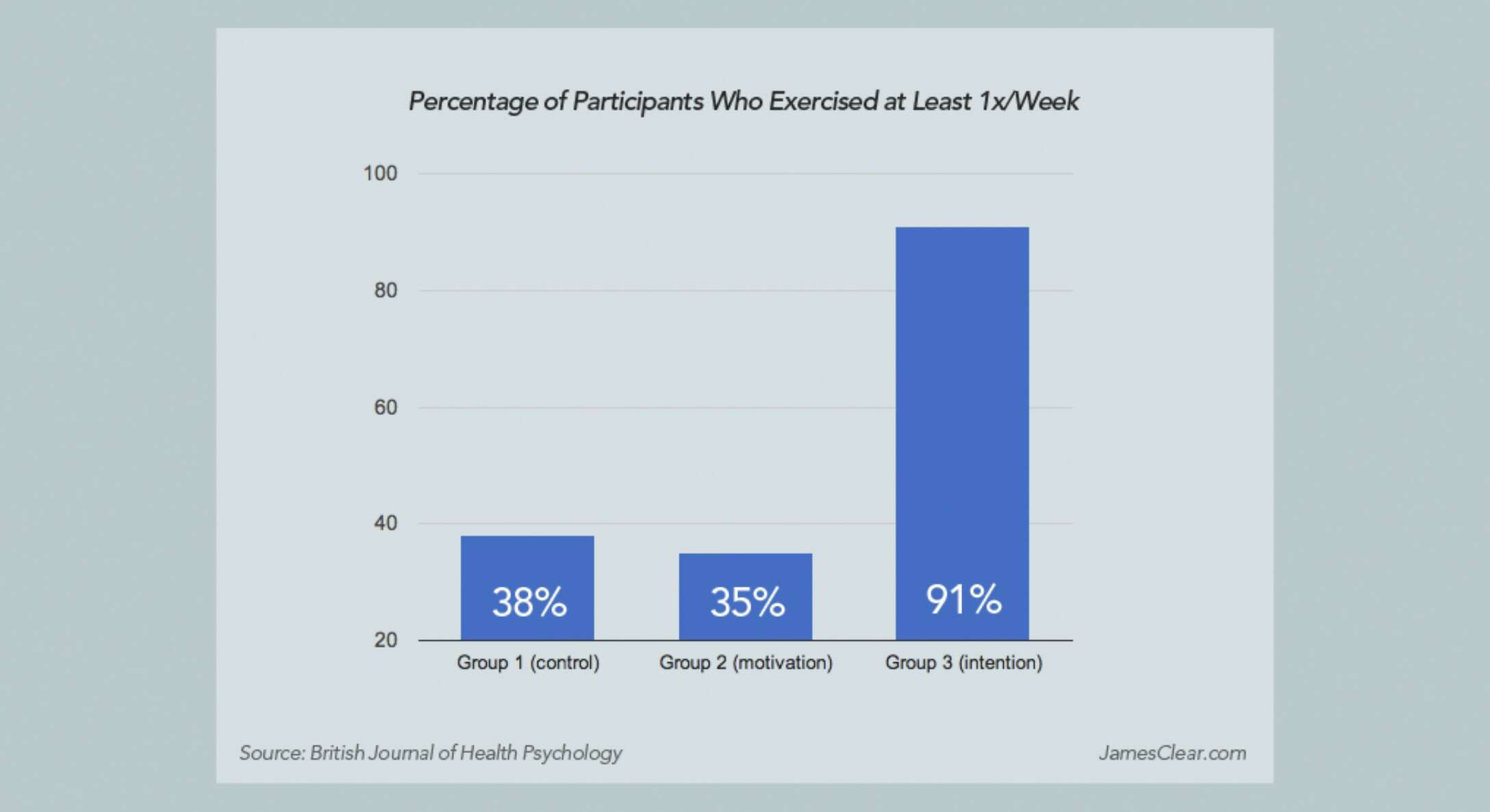THE BEHAVIORAL EXPERIMENT
In 2001, RESEARCHERS in Great Britain began working with 248 people to build better exercise habits over the course of two weeks.
The subjects were divided into three groups.
- The first group was the control group. They were simply asked to track how often they exercised.
- The second group was the “motivation” group. They were asked not only to track their workouts but also to read some material on the benefits of exercise. The researchers also explained to the group how exercise could reduce the risk of coronary heart disease and improve heart health.
- Finally, there was the third group. These subjects received the same presentation as the second group, which ensured that they had equal levels of motivation. However, they were also asked to formulate a plan for when and where they would exercise over the following week. Specifically, each member of the third group completed the following sentence: “During the next week, I will partake in at least 20 minutes of vigorous exercise on [DAY] at [TIME] in [PLACE].”
- In the first and second groups, 35 to 38 percent of people exercised at least once per week.
- Interestingly, the motivational presentation given to the second group seemed to have no meaningful impact on behavior.
- But 91 percent of the third group exercised at least once per week - more than double the normal rate
THE DIFFERENCE MAKER: The sentence they filled out is what researchers refer to as an implementation intention, which is a plan you make beforehand about when and where to act. That is, how you intend to implement a particular habit.
WHY IT MATTERS: Individuals who create a specific plan outlining when and where they will implement a new habit are more likely to follow through. By removing the need for decision-making at the moment of action, implementation intentions provide a level of clarity that often enhances follow-through.
MY FAVORITE METHOD: I prefer to create an implementation intention for my habits by following a specific framework.
.jpg)
- Should I write a chapter today or not?
- Should I meditate this morning or at lunch?
When the time for action comes, there's no need to decide. Just follow your pre-established plan.
Many people try to change their habits without figuring out these essential details. We tell ourselves, "I'm going to eat healthier" or "I'm going to write more," but we never specify when and where these habits will occur. We leave it to chance, hoping that we'll "just remember to do it" or feel motivated at the right time.
Implementation intentions clear up vague intentions like "I want to work out more" or "I want to be more productive" by transforming them into concrete action plans.
more tomorrow,
Hunter
more tomorrow,
Hunter

.jpg)